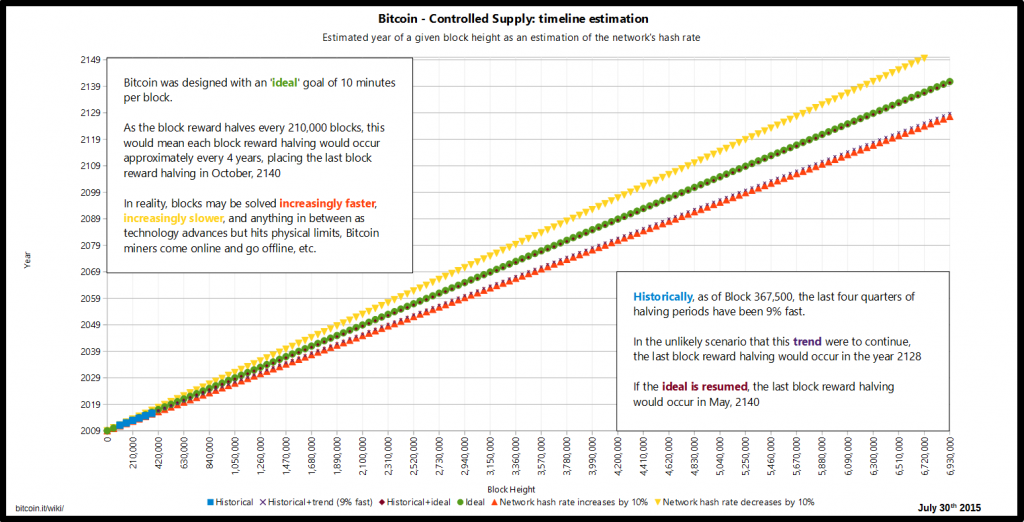Table of Contents
Bitcoin has been a great topic of discussion amongst investors, finance professionals, media outlets, investment commentators, bloggers, etc. The cryptocurrency has been called by a lot of names.
Some of them are ‘the next financial revolution’, internet currency, decentralized money, digital gold, gold 2.0. But what is it exactly?
Bitcoin primarily consists of two things. The token and the protocol that powers the token. In 2009, anonymous creator(s) Satoshi Nakamoto mentioned both, as a ‘Peer-to-Peer Electronic Cash System’ in the white paper.
Represented by the symbol BTC, bitcoin is a medium-of-exchange. By design, there is a cap on the total supply of bitcoin. Only 21 million bitcoins will ever be available.

No individual or centralized authority controls bitcoin’s creation and circulation. BTC leverages cryptography for supply, issuance, and transaction verification. That’s why Bitcoin is a cryptocurrency https://wazirx.com/blog/what-is-cryptocurrency/
On a protocol level, Bitcoin is a distributed network of computers that maintains a record/ledger of all BTC transactions. This network is called the Bitcoin blockchain.
Get WazirX News First
Every network participant has a copy of the ledger, which makes it difficult for hackers and infiltrators to gain access and alter the network data. To understand how this all happens visually, check out the video below:
Why Bitcoin Came into Being?
In the year 2008, The United States housing market crashed. It was a reality check for people putting their complete faith and ‘trust’ in legacy financial systems.
The Great Recession was a result of the failure of trust-based systems. Trust is not bad but it creates inefficiencies and fissures in operational models. It also significantly increases the cost to operate such operational models.
2008’s economic slowdown illustrated the need to democratize finance, to give users the control of their money, to let people be their own banks.
Bitcoin’s idea took shape when Satoshi intended to minimize trust, through the use of cryptographic proof, decentralized network design, and open-source software.
He/She/They designed the protocol in such a way so that bitcoin transactions
- Could happen without permissions and beyond borders
- Are trustless, pseudonymous
- Can happen without anyone blocking or freezing a transaction of any amount
- Takes place faster than usual banking transactions and without being reversed
- Keep happening 24 hours a day, 365 days per year.
When Bitcoin was finally revealed to the public, erstwhile developer and one of Satoshi’s closest associates, Hal Finney posted this tweet:
How Does Bitcoin Work?
Bitcoin leverages a public-key cryptography system, peer-to-peer networking, and mining to process and verify payments.
Network participants or miners engage in a competition to verify transactions using advanced computing hardware designed to solve complex mathematical problems.
The miner who solves the problem verifies the transaction and adds it to a block. This goes on for a while until the block is full. The block then gets added to the longest chain. Miners win an appropriate number of bitcoins generated by the protocol, for quickly adding blocks to the chain. The reward system is called ‘proof-of-work’.
This is how new BTC is created, and subsequently becomes a part of the Bitcoin economy as miners sell these newly minted bitcoins to cover their operational costs.
The addition of transaction information to the blockchain eliminates a ‘double spending’ scenario.
How to Buy Bitcoin, and From Where?
Cryptocurrency exchanges can serve as the most appropriate place to buy Bitcoin. At WazirX, we offer the safest and fastest platform for you to start your Bitcoin journey.
What is the Future of Bitcoin?
Bitcoin has come a long way, since its inception in 2009. It is now supported by a multi-billion dollar BTC mining industry and billions of dollars worth of spot and futures trades that have ballooned Bitcoin’s value over the years. With a market cap of around $170 billion, it is no longer a DIY project for hobbyists.
Just recently, famed billionaire hedge fund investment heavyweight Paul Tudor Jones favored Bitcoin and said that he would give a section of his portfolio to BTC. According to his market outlook, ‘The Great Monetary Inflation’ Mr. Jones drew similarities between bitcoin and the 1970’s gold market.

He said that the first cryptocurrency, just like gold stands to gain a lot on the investment front.
Apart from investment, tremendous progress is happening on the development front. Developers are working tooth and nail to speed up bitcoin transactions. Bitcoin development firm, Blockstream, and off-chain scaling solution Lightning Network deserve notable mentions in this regard.
Bitcoin also stands to become a great smart contract development platform. As per a CoinDesk report published last year, prominent Bitcoin programmer Pieter Wuille, unveiled a new language called ‘Miniscript’ that could find a use for programming Bitcoin-based smart contracts and decentralized applications.
Further Reading:
What is the difference between a token and a Bitcoin?
Are Tether and Bitcoin related? How Tether affects Bitcoin?
6 Things to Consider Before Investing in Bitcoin
What are the Differences Between Bitcoin and Ripple?
6 Bitcoin Myths That You Should Stop Believing
Bitcoin Wallets: The Definitive Guide
What is Litecoin (LTC)? Hows is it Different from Bitcoin?
What are the Differences Between Peer-to-Peer and Regular Bitcoin Exchanges?
Why are Bitcoins More Popular?
6 Tips to Keep Your Bitcoin Wallet Safe
5 Ways to Keep Bitcoin Transactions Private
What Will Happen when all Bitcoins are Mined?
Bitcoins in India: Challenges and Opportunities Ahead
Does Bitcoin have a volatile nature? Why?
Can Bitcoin Replace Credit Cards?
Why Start-ups Should Consider Using Bitcoins?
What is Bitcoin halving? Why is it important for cryptocurrency investors?
Can you buy shares in Bitcoin?
What is the difference between a token and a Bitcoin?
Are Tether and Bitcoin related? How Tether affects Bitcoin?
Frequently Asked Questions
What Are The Chances Of Bitcoin Crashing?
Two Yale University economists (Yukun Liu and Aleh Tsyvinski) produced research titled "Risks and Returns of Cryptocurrency" in 2018. They looked at the possibility of Bitcoin crashing to zero in a single day. The authors discovered that the chances of an undefined tragedy crashing Bitcoin to zero ranged from 0 percent to 1.3 percent and was around 0.4 percent at the time of publishing, using Bitcoin's history returns to determine its risk-neutral disaster probability. Others claim that because Bitcoin has no intrinsic value, it will inevitably crash to zero. On the other hand, Bitcoin advocates argue that the currency is backed by customer confidence and mathematics.
What Is Bitcoin And How Does It Work?
Bitcoin is decentralized digital money that may be bought, sold, and exchanged without an intermediary such as a bank. Bitcoin is based on a blockchain that is considered to be a distributed digital ledger. As the name suggests, blockchain is a linked database made up of blocks that store information about each transaction, such as the date and time, total amount, buyer and seller, and a unique identifier for each exchange. Entries are linked in chronological order to form a digital blockchain
Is Bitcoin Safe And Legal In India?
In 2020, the Supreme Court of India lifted the RBI’s restrictions on cryptocurrencies. According to the Supreme Court, the existence of Bitcoin or another cryptocurrency is unregulated but not unlawful. The verdict has greatly aided the world of digital money in the country. To put it another way, investing in Bitcoin is perfectly legal, and you may do so through various apps and traders.
How Does Bitcoin Technology Work?
The blockchain is the foundation of Bitcoin. It is a decentralized, distributed ledger that tracks the provenance of digital assets. The data on a blockchain can't be changed by design, making it a real disruptor in industries like payments, cybersecurity, and healthcare.
Is Bitcoin Trading Is Legal In India?
In 2020, the Supreme Court of India lifted the RBI’s restrictions on cryptocurrencies. According to the Supreme Court, the existence of Bitcoin or another cryptocurrency is unregulated but not unlawful. The verdict has greatly aided the world of digital money in the country. To put it another way, investing in Bitcoin is perfectly legal, and you may do so through various apps and traders.
What Is Bitcoin Used For?
Bitcoin was created as a means of sending money over the internet. The digital currency was designed to be a non-centralized alternative payment system that could be used in the same way as traditional currencies. Bitcoin is being used by an increasing number of businesses and individuals. This includes establishments such as restaurants, apartments, and law firms.
How Many Bitcoins Are There?
There are 18,730,931.25 Bitcoins in circulation as of June 2021. The total number of Bitcoins that would ever be there is just 21 million. On average, 144 blocks are mined every day, with 6.25 Bitcoins per block. The average number of new Bitcoins mined every day is 900, calculated by multiplying 144 by 6.25.
How Much Is 1 Bitcoin Worth Today?
Check out the current price of Bitcoin on the WazirX exchange. Bitcoin's value is primarily determined by its supply and demand in the market. Other elements have an impact on its worth. Its intrinsic value can also be calculated by calculating the average marginal cost of producing a Bitcoin at any given time, based on the block reward, electricity price, mining hardware energy efficiency, and mining difficulty.
What Type Of Currency Is Bitcoin?
Bitcoin is a type of digital currency or cryptocurrency. In January 2009, Bitcoin was established. It's based on Satoshi Nakamoto's ideas, which he laid out in a whitepaper. The name of the individual or people who invented the technology remains unknown.
How Does Bitcoin Work?
The blockchain, a distributed digital ledger, is what Bitcoin is based on. As the name suggests, blockchain is a linked database made up of blocks that store information about each transaction, such as the date and time, total amount, buyer and seller, and a unique identifier for each exchange. Entries are linked in chronological order to form a digital blockchain. Entries are linked in chronological order to form a digital blockchain. Blockchain is decentralized, which means any central authority does not control it.
 Disclaimer: Click Here to read the Disclaimer.
Disclaimer: Click Here to read the Disclaimer.






















3 Comments